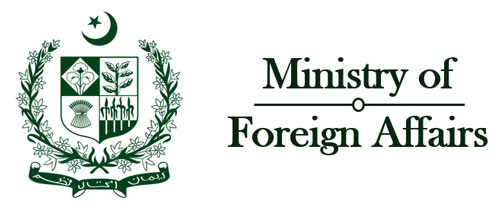Staff Reporter Islamabad
Pakistan has “welcomed” a letter written by a group of European parliamentarians to the European Commission on the “humanitarian situation” in Indian-occupied Kashmir, calling it “yet another demonstration of the global censure” of India’s human rights violations in the valley.
Sixteen European lawmakers had addressed a letter on Friday to European Commission President Ursula von der Leyen and Vice President Josep Borrell, urging the European Union to raise its voice on human rights violations in IoK and take action.
“We believe that the EU should use all its leverage and tools to cooperate with our Indian and Pakistani partners to honour the pledge made to the Kashmiris by the international community and create an environment conducive to the implementation of the United Nations resolutions,” the letter reads.
The Foreign Office, in a statement issued on Saturday, welcomed the letter, saying: “This letter is yet another demonstration of the continuing global censure of the ongoing human rights violations and humanitarian crisis in IoK.”
The statement said that despite “India continuously peddling false propaganda in futile attempts to push the sham narrative of so-called ‘normalcy’ in IoK”, criticism of Indian actions had only increased after “egregious violations of human rights and fundamental freedoms” in the wake of India’s “illegal and unilateral” actions to strip IoK of its special autonomy on August 5, 2019.
Article 370 of the Indian constitution had limited the power of the Indian parliament to impose laws in the state. By repealing it, people from the rest of India were given the right to acquire property in IoK and settle there permanently.
The FO statement noted that various international forums had now debated the issue with international media and human rights organisations were “consistently” raising the topic of humanitarian violations in the territory.
“India must realise that it cannot ignore the international community’s continuing calls to end its grave and systematic human rights violations of the Kashmiri people,” the FO added.
“India will have to ultimately give in to global conscience, end its unabated human rights violations in parts of Jammu and Kashmir under its illegal occupation and take steps for peaceful resolution of the Jammu and Kashmir dispute in accordance with the relevant UNSC resolutions
cooperate with our Indian and Pakistani partners to honour the pledge made to the Kashmiris by the international community and create an environment conducive to the implementation of the United Nations resolutions,” the letter reads.
The Foreign Office, in a statement issued on Saturday, welcomed the letter, saying: “This letter is yet another demonstration of the continuing global censure of the ongoing human rights violations and humanitarian crisis in IoK.”
The statement said that despite “India continuously peddling false propaganda in futile attempts to push the sham narrative of so-called ‘normalcy’ in IoK”, criticism of Indian actions had only increased after “egregious violations of human rights and fundamental freedoms” in the wake of India’s “illegal and unilateral” actions to strip IoK of its special autonomy on August 5, 2019.
Article 370 of the Indian constitution had limited the power of the Indian parliament to impose laws in the state. By repealing it, people from the rest of India were given the right to acquire property in IoK and settle there permanently.
The FO statement noted that various international forums had now debated the issue with international media and human rights organisations were “consistently” raising the topic of humanitarian violations in the territory.
“India must realise that it cannot ignore the international community’s continuing calls to end its gravee and systematic human rights violations of the Kashmiri people,” the FO added.
“India will have to ultimately give in to global conscience, end its unabated human rights violations in parts of Jammu and Kashmir under its illegal occupation and take steps for peaceful resolution of the Jammu and Kashmir dispute in accordance with the relevant UNSC resolutions and wishes of the Kashmiri people.”
India has continued to impose strict restrictions on people in the region including on religious festivities. Local media had reported that Indian authorities had barred Muslims from offering prayers in major mosques on Eidul Azha and placed restrictions on ritual sacrifice.










